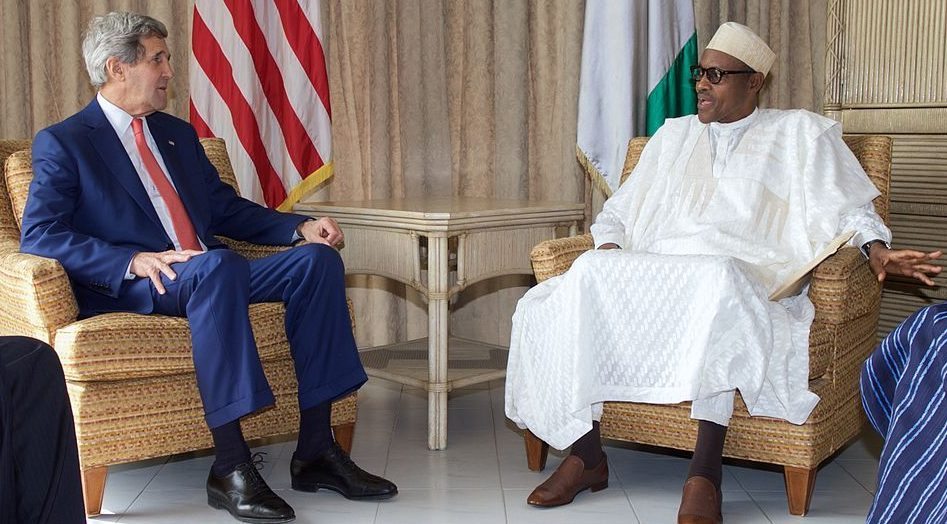Nigeria’s time to shine? A look at President Osinbajo’s hurdles
In the not so distant past economists were raving about a new era of economic growth with Nigeria at the very heart of this financial fervour. The BRIC (Brazil, Russia, Indonesia, China) economies have clearly had their time in the lime light and must now step aside for those of the MINT nations (Mexico, Indonesia, Nigeria, and Turkey) – yes, yet another acronym popularised by Goldman’s Jim O’Neil. However, pervasive economic growth for these developing states has not proven to be plain sailing, especially for Nigeria, whose economy has become entangled in corruption and political instability.
President for a Day
In May 2015 Muhammadu Buhari became the country’s second democratically elected president. Self-described as a ‘converted democrat,’ the former major general’s support came as he sought to combat corruption and defeat the Islamic extremist group Boko Haram, whose presence has caused widespread terror in the North of Nigeria. Yet, after just over a year in office, the seventy-four year old has enacted a period of medical leave, leaving his Vice President, Oluyemi Osinbajo, in charge. This is a worrying time for many Nigerian’s who inevitably will be suffering from bouts of nostalgia: a similar situation happened in 2010 when President Umaru Musa Yar’Adua died, leaving Nigeria in somewhat of a political vacuum.
Nigeria’s Economic Struggles
For Osinbajo, this has not been a good time to take office. Over the last year, economic growth in Nigeria has been a turbulent state of affairs: growth has violently fluctuated between minus 13.7 % to plus 8.99% (that’s a 22.69% swing), with a net contraction of 1.5% in 2016. Part of this can be explained by the recent decline in world oil prices. The Nigerian economy is heavily dependent on the commodity, accounting for 77% of Nigerian exports in 2015, and so the decline in price will have hit the county hard at a time when investment is crucial.
growth has violently fluctuated between minus 13.7 % to plus 8.99%
This is not the end of Nigeria’s woes. Emerging economies generally do not have the capital to fund large scale infrastructure projects alone and commonly turn to international markets for assistance. With investors seeking both economic and political stability, the current state of the nation is likely to make this harder. Generally, as the political and economic state of a country declines investors will demand higher interest rates to accommodate for greater uncertainty (think US government bonds Vs Brazilian government bonds). Evidently then, higher interest rates are going to make Nigerian infrastructure projects more expensive and less likely to go ahead – thus slowing economic progress.
Generally, as the political and economic state of a country declines investors will demand higher interest rates
Will Acting-President Osinbajo be more successful?
However, all may not be doom and gloom for Nigeria. Some observers have been quick to comment on the potential for reform under the enacting president, with many investors depicting Osinbajo as more market friendly. So, is now the time for the Nigeria to rekindle strong economic growth?
I do not see this happening. To start off with, Mr. Osinbajo is not the long-term president of Nigeria and his tenure will be temporary. It is very unlikely that the actions of Osinbajo are not without scrutiny of Muhammadu Buhari and, as a result, we are not going to see a U-turn in government policy. Moreover, although the current president has been slow off the mark (earning him the magnificent nickname “Baba go slow”), the misfortunes of Nigeria have largely been unavertable. Nigeria’s hope for the future cannot be established solely on the basis of one man. It is, however, sown by economic reform.
Nigeria’s hope for the future cannot be established solely on the basis of one man
Needless to say, we should not be too pessimistic about the Nigerian economy. The decline in the price of oil has sent a strong message that overreliance in one industry – particularly a volatile commodity – is never good. Clearly the government should be seeking to invest in new industries and build a more diversified economy, thus safeguarding against isolated market shocks. There has been recent evidence of a Nigerian willingness to restructure and stimulate confidence, as shown by the recent flotation of its currency; the Nigerian Nair.
Looking forward, the government must continue its fight against corruption and deleveraging Nigeria’s dependence on oil – neither of these will be easy. Nigeria must ensure it remains open for investment and provide some degree of political stability, this starts by maintaining openness when it comes to Muhammadu Buhari’s ill-health. With major economic reforms on the horizon, Nigeria’s future may be set to get a lot better in the coming years. Its success (or demise) will largely be determined by its ability to create certainty for investors.

Comments (2)
Buhari is not the first democratically elected president. Check your facts and edit this post.
Buhari, is not the first democratically elected president. Check your facts and edit this post.